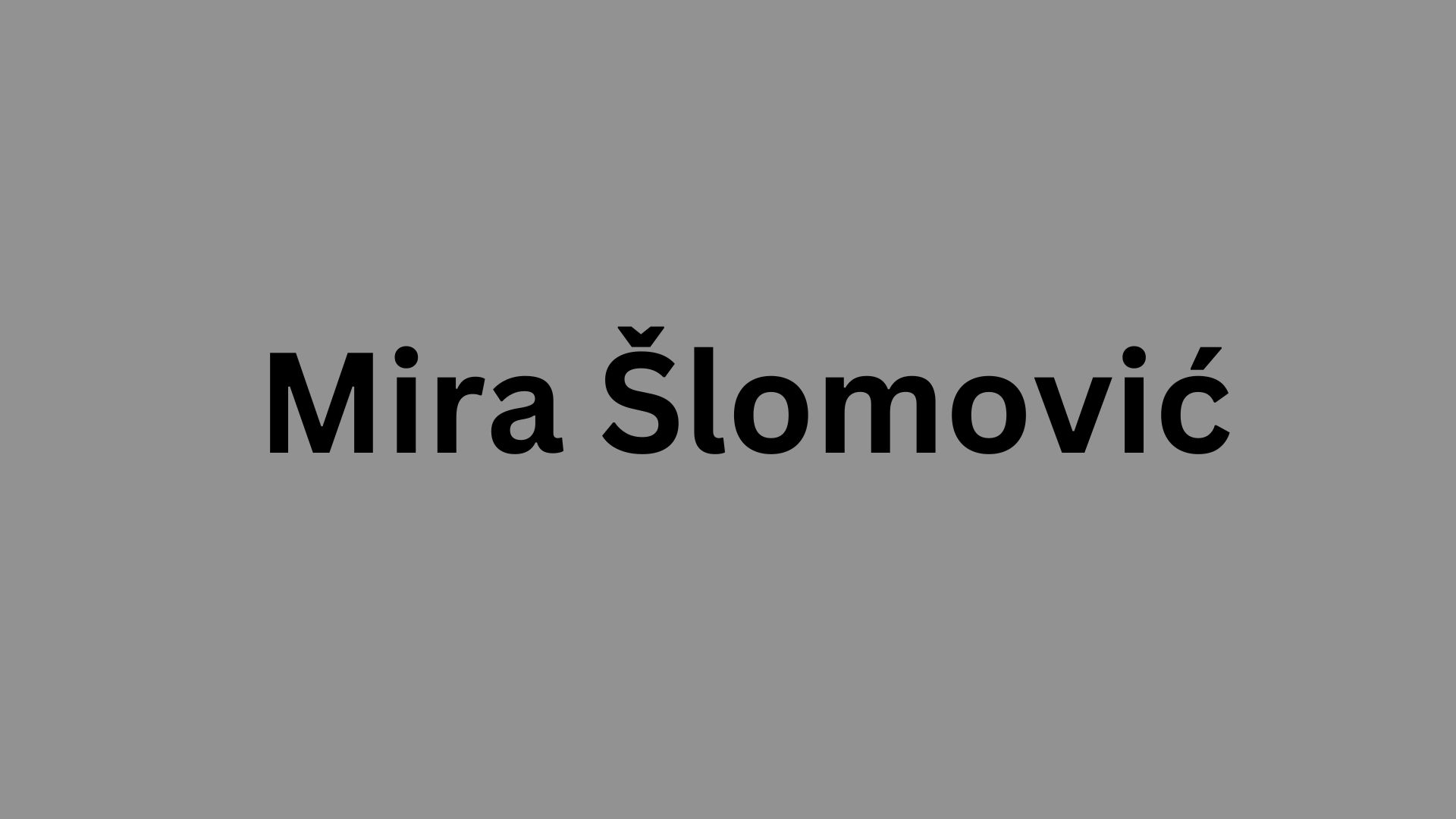
Mira Šlomović Biography
Table of Contents
The story of Mira Šlomović is one of survival, resilience, and friendship during the darkest days of World War II. Mira, a Jewish woman from Yugoslavia, was one of the many Jews who faced the horrors of Nazi occupation and the genocidal policies of the Ustaša regime in Croatia. Her life was saved by a Croatian partisan named Ivan Vranetić, who risked everything to protect her and other Jews from deportation and death.
Early Life and the Outbreak of War
Mira Šlomović was born into a Jewish family in what was then the Kingdom of Yugoslavia. Before the war, her life, like that of many other Yugoslav Jews, was relatively peaceful. However, in 1941, when Nazi Germany and its Axis allies invaded Yugoslavia, her world was turned upside down.
Yugoslavia was quickly divided, with parts of it occupied by Germany, Italy, and Hungary, and a fascist puppet state known as the Independent State of Croatia (NDH) was established. This new regime, under the leadership of the Ustaša movement, implemented Nazi-like racial laws and began the systematic persecution of Jews, Serbs, Roma, and others. Jewish families, including the Šlomović family, were stripped of their rights, their property was confiscated, and many were sent to concentration camps.
Persecution and Escape
Facing the threat of arrest and deportation, Mira Šlomović and her family were forced to flee their home. They, like many other Jews, sought refuge in the rural and remote areas of the country, hoping to evade the clutches of the Ustaša and the Nazi occupiers. The countryside, however, was also a dangerous place, as the Ustaša were actively hunting for Jews, and collaborationist forces were assisting them in capturing those in hiding.
It was during this perilous time that Mira’s path crossed with Ivan Vranetić, a young Croatian partisan who would become her protector. The Partisans were a communist-led resistance movement fighting against the Axis powers, including Nazi Germany and their Ustaša allies. Ivan Vranetić was part of this movement, and although he was only in his teens, his actions would prove crucial in saving Mira’s life.
The Role of Ivan Vranetić
Vranetić, despite the immense danger, decided to help Mira and her family. He hid them in his village and used his knowledge of the local area to shelter them from the Ustaša forces. The relationship between Mira and Ivan soon grew into a strong bond, built on trust and mutual respect. Vranetić did not view Mira simply as someone to be rescued, but as a friend and equal who deserved to live free from persecution.
For months, Vranetić worked tirelessly to protect Mira, moving her between safe houses, hiding her in the forests, and ensuring that she had food and supplies. His efforts were not limited to Mira; Vranetić also helped other Jews who had fled to the area, using his connections within the Partisan resistance to provide them with safe passage and shelter.
Survival and the End of the War
Through Ivan Vranetić’s bravery and resourcefulness, Mira Šlomović survived the war. Many Jews who fled into hiding were not as fortunate, as they were betrayed or captured and sent to concentration camps. However, thanks to Vranetić’s efforts, Mira and several others were able to evade the Ustaša and live to see the end of the war.
The war finally ended in 1945, and with it, the nightmare of Nazi and Ustaša occupation came to an end. Yugoslavia emerged as a socialist state under the leadership of Josip Broz Tito, and Mira, like many survivors, began the difficult process of rebuilding her life.
Post-War Life and Honoring Ivan Vranetić
After the war, Mira never forgot the man who had saved her life. She remained in contact with Ivan Vranetić, and their friendship endured long after the war ended. For Mira, Vranetić’s actions were not just a matter of survival, but a testament to the possibility of kindness and humanity even in the face of unimaginable cruelty.
In the decades that followed, Mira and others who had been saved by Vranetić submitted testimonies to Yad Vashem, the Holocaust memorial center in Israel, detailing his heroism. Their testimonies were crucial in ensuring that Vranetić’s story was known and that he received the recognition he deserved.
In 1970, Yad Vashem officially honored Ivan Vranetić as one of the Righteous Among the Nations—a title given to non-Jews who risked their lives to save Jews during the Holocaust.
This honor was a formal acknowledgment of his extraordinary moral courage and the lengths he went to in order to save Mira and others. Vranetić traveled to Israel to accept the honor, where he was reunited with Mira and other survivors, and their emotional reunion became a powerful symbol of the enduring impact of his bravery.
Conclusion
Mira Šlomović’s story is inseparable from that of Ivan Vranetić, the man who saved her life during the Holocaust. Through her testimony and the recognition of Vranetić as one of the Righteous Among the Nations, Mira ensured that his legacy of compassion and courage would be remembered for generations. Her survival, against all odds, is a testament not only to the strength of the human spirit but also to the profound impact that one person’s kindness can have in the darkest of times.